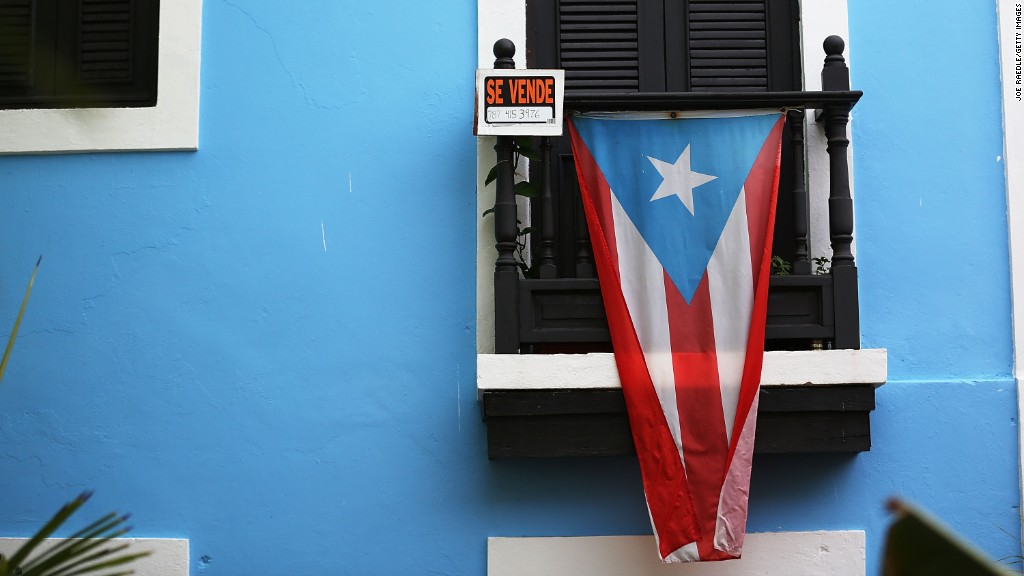
When Hurricanes Harvey and Irma hit the southern portion the United States, major news anchors and newspaper reporters flooded in along with the water.
Live shots of streets that turned into rivers dominated the news coverage -- huge storms barreling towards large swaths of the U.S. will always be a big story.
But Hurricane Maria, which hit Puerto Rico last week, just now seems to be gaining a fraction of the media attention that Harvey and Irma attracted despite the fact that the Commonwealth island is a U.S. territory and home to millions of American citizens.
"The recent storms of Harvey and Irma, there was a lot coverage prior and during....with Puerto Rico Rico we were all expecting to see more coverage," said Dr. Edwin Meléndez, director of the Center for Puerto Rican Studies at Hunter College in New York City. "In all the shows, the coverage was not as extensive, such as the length and the depth of the coverage, the on-the-ground cameras."
The five major Sunday shows barely mentioned the hurricane, according to a review by the watchdog group, Media Matters. Of the major broadcast networks, only NBC sent its main anchor Lester Holt to Puerto Rico on Monday night, though all three, along with the cable networks had correspondents on the ground. A review of the hurricane coverage on the three major cable networks--CNN, MSNBC and Fox--shows a steady stream of mentions from the middle of last week and through the weekend, with a clear rise on Monday and into Tuesday.
"A curtain is slowly being lifted on this disaster, revealing more and more of the suffering and the dire straits on this island," Holt said on NBC "Nightly News" on Monday night.
Newspapers also highlighted the storm, but like television, the coverage was not to the same extent as the previous hurricanes. Since the storm hit, the situation in Puerto Rico was the New York Times' main photo on its front page twice.
Meléndez said it was clear television crews were not in place ahead of the storm, despite the fact that the forecasts were clear that it would be a devastating hurricane. Once Maria hit, travel to the island became increasingly difficult, if not impossible. Nearly all communications have been cut off on the island.
A recent poll shows that nearly half of Americans don't know that the people of Puerto Rico, an island and Spanish-speaking territory of the United States, are American citizens. That, along with "hurricane fatigue" from Irma and Harvey, could be contributing to the lack of coverage, Meléndez said.
"If it's not in the conscience of people right now, it won't be solved," Meléndez said. "I'm afraid that because of Texas and Florida we will become an afterthought. And I think the media has a great responsibility to make sure Puerto Rico doesn't continue to be an afterthought."
President Donald Trump, whose every move usually dominates the news cycle, wasn't using his favored mode of communication to bring attention to the hurricanes as he did with Irma and Harvey. Trump barely tweeted about the hurricane since it hit last Wednesday, but instead spent his weekend railing on NFL players who kneeled during the national anthem to protest police violence. When he finally tweeted about the disaster on Monday, he opted to focus on Puerto Rico's "broken infrastructure & massive debt," before later expressing support for the island. Trump said he will visit the island next week.
"I hope that the president uses his visit to double down on his support of Puerto Rico," Meléndez said. "I think his remarks were a little insensitive because you're in the midst of destruction with lives at stake and his comments about the financial debt of Puerto Rico. Why do you bring that up now?"
Members of the administration have also claimed the media is ignoring the problem.
"While media hasn't focused on #Maria, Fema and its partners have. 10,000 federal staff working to meet @ricardorossello response goals," FEMA administrator Brock Long tweeted on Monday.
Susanne Ramirez de Arellano, a former news director for Univision Puerto Rico, said in a column for the Guardian that people were turning to social media to get their news, "Because we couldn't trust major media outlets in the United States to give us in-depth coverage of the devastation. Our disasters, we figured, just don't rate high enough in their eyes," she wrote in the column published Tuesday.
"Sadly, this treatment of Puerto Rico is no surprise," she said. "Because of the island's colonial status, it is consistently overlooked and ignored. Nothing has made this clearer than the response to this disaster."


